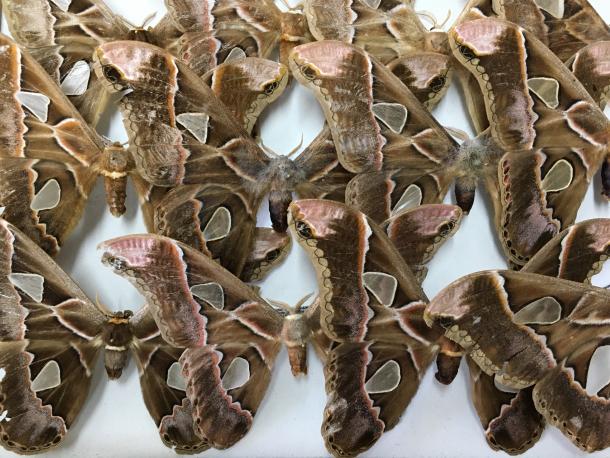
A group of Rothschildia erycina moths (the official ACG logo moth) ready for eventual storage at the Smithsonian Museum of Natural History in Washington, D.C.
A recent article, “Science Grants ‘Tica Certificate’ to Thousands of Species Each Year,” in Costa Rica’s national newspaper, La Nación, describes how, every year, thousands of species in Costa Rica are discovered as new species. But a species isn’t considered “new” until it receives an officially registered name. While it is waiting, it receives a placeholder, what is called a “Tica certificate.” The article notes that it is not clear just how many organisms have been described for the first time in Costa Rica, as there is no one repository for this information. Angela González, the director of the National Commission for Biodiversity Management (CONAGEBIO), says, “This information is very scattered, not unified. We urgently need to record the information about the country’s biodiversity and, hopefully, in a single repository... We need to better manage scientists so they register their data on this platform, which we hope will be open source.” The article highlights ACG’s BioAlfa project, which the article calls a “pioneer” in this effort. ACG Director Alejandro Masís explains how BioAlfa uses molecular technology — DNA barcoding – to identify new species. Prior to this technology, he explains, “it would have required tens of years to differentiate species, by making dissections of different parts, and comparing statistics. With molecular technology, you just take a sample of the animal, extract the DNA, and look for a particular gene.” Still, that process does not “baptize” a species as new. While BioAlfa has led to some formally described new species, many are still waiting. Dr. Dan Janzen, who is also quoted, says that it is easy to discover a new species. The expensive part is in the energy required to name them. That task, he says, may take years. In the meantime, the article notes, the “Tica certificates” help give us a better understanding of the biodiversity surrounding us.